The Sony FE 24-70mm f/2.8 ED GM is our favorite Sony lens. It’s a brilliant wide-to-standard angle zoom range for full frame cameras. It doesn’t come cheap. But the build quality, optical precision, and features make it a worthy investment for photographers. [Note: ExpertPhotography is supported by readers. Product links on ExpertPhotography are referral links. If you use one of these and buy something, we make a little bit of money. Need more info? See how it all works here.]
Finding the Best Sony Lens in 2022
Here are the 19 best Sony lenses. On our list, you will find a variety of focal lengths—wide-angle, mid-range, and telephoto lenses. We also have prime and zoom lenses. We’ve broken our list down so you can find exactly what you need. The first section looks at Sony lenses for APS-C cameras. We then move on to lenses for full frame cameras, with sections for prime and zoom lenses. We look at each set of lenses with various types of photography in mind. These include sports, macro, and portrait lenses. Skip to the section you need by clicking a link:
Best Sony APS-C Lenses
The first section of our list is dedicated to the best APS-C lenses for Sony cameras. Sony APS-C (crop-sensor) mirrorless cameras have the Sony E lens mount. This section includes prime and zoom lenses. Here’s a quick look at all the best E-mount lenses. Then we’ll look at each Sony lens in more detail. The crop-sensor 50 mm f/1.8 OSS is one of Sony’s lightest lenses. It is the perfect balance of focal distance and aperture. The lens is fast with quiet autofocus. It is small and portable. And it works for portraits, videos, and close indoor work. It has nine elements in eight groups with seven rounded aperture blades. So it has good image stability, and the images are sharper than third-party equivalents. It is the perfect prime lens to pair with your crop-sensor body. And the price tag is nothing short of amazing! The Sony E 18-105 mm f/4 ED G OSS lens is an all-around lens for APS-C Sony cameras. It covers a wide range of focal lengths. It is perfect for travel or street photography. As a G Series lens with optical stabilization, this crop-sensor option seems to have it all. The lens has 16 elements in 12 groups with seven rounded aperture blades. On the barrel is a PowerZoom lever allowing for smooth zoom. It is a little chunkier than some other APS-C lenses. But it is quiet and has a solid build quality. This is not Sony’s sharpest lens. But it is versatile with good image quality. If you buy this lens, you are getting a good lens at an affordable price! The Sony E 70-350 mm f/4.5-6.3 G OSS is the most expensive APS-C lens on this list. This G lens has many features of mid-level, full frame lenses. But it remains an affordable lens option for all photographers. It has an exceptional reach, fast autofocus, and great image stabilization. The latter reduces signs of camera shake, like motion blur. It has 19 elements in 13 groups with three extra-low dispersion elements for sharp photos. And it uses a fast, efficient XD (extreme dynamic) linear motor autofocusing system. The lens barrel has a Focus Hold button and AF/MF (autofocus and manual focus) switch. It gives you more options with your exposure settings. And you can control image stabilization. The slower lens is not a problem if you want a long telephoto lens and mainly shoot during the day. If you are looking for a mid-range budget zoom lens, the Sony E 55-210 mm f/4.5-6.3 is the lens for you. It is small in dimension and weight, perfect for APS-C bodies. This lens is not designed to go toe-to-toe with the higher-end telephotos. But the lens has 13 elements in nine groups, with two ED and two aspherical elements. So you experience very little lens distortion or aberration. And it creates good-quality images. It has slower autofocus than the top models. But it’s still smooth and accurate, even with a fast-moving subject. The narrower aperture means that it does not work as well in low light. But you cannot beat the price! This is a good lens for traveling light. If you are looking for a crop-sensor, wide-angle prime, look to Sigma. Its 16mm f/1.4 lens works for video, landscapes, and street photography. It is sharp, fast, and works in low light. The lens has 16 elements in 13 groups with two aspherical, two Special Low Dispersion (SLD), and three “F” Low Dispersion (FLD) elements to minimize chromatic aberration. It is a bit large and heavy. But it should not overbalance crop-sensor cameras too much. It is not as quiet as the Sony equivalent and does not focus as quickly. But it gives you sharp images at a jaw-droppingly low price!
Best Sony Full Frame Prime Lenses
Now, we go through our picks for the best Sony prime lenses for full frame cameras. While prime lenses might not have the versatility of zoom lenses, these primes are well-made with crystal-clear optics. And each one has been selected for its specialist qualities.
You can browse the overview before getting into the nuts and bolts of each lens.
Lens Name Why We Love It Price Sony FE 24mm f/1.4 SSM ED GM Prime Lens Our Top Choice Compact and lightweight prime with a beautiful wide-angle view Corner-to-corner sharpness with no distortion Fast f/1.4 max aperture for better exposure control and bokeh Sony FE 50mm f/1.2 GM Prime Lens Best “Nift-Fifty” Prime A versatile lens with outstanding built quality Ultra-fast f/1.2 aperture gives you incredible creative control 11-blade aperture gives you the richest background bokeh Sony FE 85mm f/1.8-22 Prime Lens Best Value Prime Excellent sharpness even at the very edge More exposure control with the fast max aperture Double linear AF motors for fast and precise focusing Sony FE 90mm f/2.8-22 SSM ED G OSS Prime Lens Best Macro Lens Sony’s best lens for macro photography with super-sharp optics Optical Steady Shot stabilization ensures sharp images Dust- and moisture-resistant body for outdoor photography Sony FE 135mm f/1.8 ED G Prime Lens Best Portrait Lens Precision lens craftsmanship produces crystal-clear results Four DX AF motors give you quick and accurate focusing even in low light 11-blade f/1.8 aperture gives you smooth and rich bokeh
The full frame, wide-angle FE 24mm f/1.4 prime lens does it all. It works as a wide portrait lens. It is good for video or astrophotography. And it is light, bright, and tack sharp.
The fast f/1.4 maximum aperture gives you excellent exposure control. It gives better results in low-light conditions. And it helps you achieve a beautiful bokeh effect when using a shallow depth of field.
The lens is relatively lightweight with a short focusing distance. And it uses Sony’s quality Direct Drive Supersonic Motor (DDSSM) autofocus system.
The lens has 13 elements in 10 groups. There are two XA (Extreme Aspherical) and three ED (Extra-low Dispersion) elements for high-resolution, precise images. And the aperture has 11 rounded blades for a smoother, creamier bokeh effect.
The lens barrel has a customizable Focus Hold button and an AF/MF switch. It also has a de-click button allowing smooth transitions between apertures using the aperture ring.
The lens is pricey but worth it for top, super-sharp image quality. It might be the sharpest lens you own!
This fast nifty-fifty lens has Sony’s widest aperture. The Sony E 50mm f/1.2 GM is an all-around lens. You can use it for portraits, street photography, or landscapes.
It has 14 elements in 10 groups, with three XA elements. So the lens is sharp and produces superior image quality with beautiful colors.
Four Extra Dynamic (XD) linear AF motors control internal focus. So the autofocus is superior.
The aperture has 11 rounded blades. That’s why this lens has a fast f/1.2 maximum aperture. It gives you more control in low light. Plus, the 11-blade aperture gives you a soft and smooth bokeh effect.
The lens has a Focus Hold button and an AF/MF switch. And it also has a physical aperture ring and a de-click switch to make a smooth transition in videography.
The lens is large for a prime. But it seems well-balanced and has amazing low-light performance. The lens is expensive, but it is Sony’s best 50mm lens.
The Sony FE 85 mm f/1.8-22 prime does not wear the G or GM badge. But it creates excellent image quality and has all the features you want in a short telephoto prime.
The lens has nine elements in eight groups with one extra-low dispersion element. So portraits are super sharp, and the colors are amazing. The aperture has nine rounded blades that create a lovely bokeh.
It uses a Dual Linear autofocus motor. So the focus is fast and accurate. Plus, a Focus Hold button and an AF/MF switch are on the barrel.
This is the budget version of the Sony FE 85 mm f/1.4 GM. And it is smaller and lighter than the f/1.4 version. If you do not need the wider aperture, go with this lens.
The f/1.8 has good image quality—not just at this price point. It is comparable to the higher-priced version and may perform better. This lens gives you quality without breaking the bank!
The Sony FE 90 mm f/2.8-22 is one of the best macro lenses on the market. At this focal length, it is also useful for close-up portraiture. The wide aperture with nine rounded diaphragm blades gives you a sharp look with terrific background bokeh.
It has a 1:1 magnification ratio and uses the precise DDSSM autofocus system. There are 15 elements in 10 groups, including Aspherical, ED, and Super ED elements. The precision-lens engineering gives you images free of glare and distortion.
The lens barrel includes a sliding focus ring for AF/MF selection. There is also a Focus Hold button and a focus range limiter to set your capture distances for easier focus. You can also control image stabilization.
The bokeh is creamy, smooth, and beautiful. If you are looking for a macro lens, look no further. For the cost, you get a super-sharp lens for macro, portrait, and product photography.
Time and again, this amazing lens is listed as one of the top portrait lenses on the market. The FE 135 f/1.8 G is sharp, with edge-to-edge clarity. And the AF motor is fast, smooth, and quiet. It’s a specialist portrait lens that delivers incredible results every time.
It is perfect for weddings, allowing you to snap individual and group shots of the whole wedding party. The wide aperture lets you shoot at low light and higher shutter speeds.
It has 13 elements in 10 groups, including XA, Super ED, and ED elements for clear, great-contrast images. There are 11 rounded diaphragm blades. And combined with the fast max aperture, they give you smooth and rich bokeh for pro portraits.
There are two Focus Hold buttons on the lens barrel and a focus range limiter. The lens has a physical aperture ring and a de-click switch. These make the lens attractive for videography.
The lens is one of Sony’s heavier and more expensive prime lenses. But this lens is hard to beat if you want a long telephoto prime!
Best Sony Full Frame Zoom Lenses
Now we’ll get into the best Sony full frame zoom lenses. There are some excellent choices here, with something for everyone. There’s a variety of prices. And we have a lens that suits every type of photography.
Here’s a quick overview. Keep reading after for more details on each lens.
Lens Name Why We Love It Price Sony FE 12-24mm f/2.8 ED GM Zoom Lens Our Top Choice Ultra-wide angle of view with sharp edge-to-edge optics Fast max aperture that’s constant through the zoom range Four XD linear motors for incredible autofocusing Sony FE 16-35mm f/4.0 G Zoom Lens Best for Landscapes The wide-angle zoom range gives you excellent versatility Excellent AF motor for fast, smooth, and quiet focusing 11-blade aperture gives you sharp focus and smooth bokeh Sony FE 24-70mm f/2.8 ED GM II Zoom Lens Best All-Around A versatile zoom range that suits many photographers Fast and precise focusing from the DDSSM AF motor Customizable Focus Hold feature for faster focusing Sigma 24-70mm f/2.8 Art DG HSM Zoom Lens for Sony E-Mount Best Third-Party A versatile lens with excellent optics 11-blade aperture ring gives you rich and smooth bokeh Constant f/2.8 aperture gives you brilliant exposure control Sony FE 24-105mm f/4.0 ED G OSS Zoom Lens Best for Travel Compact lens with a wide focal length range Fast AF for moving subjects Built-in optical image stabilization for more exposure control Sony FE 70-200mm f/2.8 ED GM OSS Zoom Lens Best Telephoto Constant aperture of f/2.8 gives you incredible low-light performance Packed with AF motors for fast and accurate focusing even with fast-moving subjects The built-in optical stabilization maintains sharpness Sony FE 70-300mm f/4.5-5.6 ED G OSS Zoom Lens Best Mid-Range Crisp, distortion free images throughout the zoom range A fast AF motor system that’s ideal for moving subjects Built-in image stabilization reduces camera shake and blur Sony FE 100-400mm f/4.5-5.6 SSM GM OSS Zoom Lens Best for Sports Sharp image quality throughout the focal length range Barrel has a zoom torque adjustment ring and removable tripod collar The image stabilization compensates for the slow aperture Sony FE 200-600mm f/5.6-6.3 ED G OSS Zoom Lens Best for Wildlife Incredible level of magnification with stunning optical quality A fast AF motor system and great adjustable focus settings Reliable optical image stabilization for sharper images and more control
The Sony FE 12-24 mm f/2.8 GM is a ridiculously sharp lens with the widest angle of view Sony makes. The edges are sharp with no coma or chromatic aberrations, even at 12mm.
You can use this lens for real estate, landscape, astrophotography, or as a walking-around lens. It is probably too wide for portraiture. But the bokeh is beautiful.
The lens has 17 elements in 14 groups with multiple aspheric elements and extra-low dispersion elements. This increases sharpness and reduces chromatic aberrations. The aperture ring has nine rounded blades for great bokeh.
Like many ultra-wide lenses, it has a bulbous front element. This means you cannot screw a filter onto the front. But you can place gels behind the lens. With the 4x XD linear motors, autofocus is fast and precise.
The lens is hefty and built like a tank. But for the build, it is surprisingly light. The lens has a customizable Focus Hold button and an AF/MF switch.
This is one of the more expensive lenses on the list. But if you are looking for an ultra-wide angle zoom, it is worth every penny!
The Sony FE 16-35mm f/4 G is a power zoom lens (PZ). It is one of the best landscape lenses you can buy. It is also great for real estate and indoor photography.
The lens has 16 elements in 13 groups for sharp focus. And there are two extra-low dispersion elements plus three aspherical and two XA elements for clear photos.
It has 11 rounded blades for a smooth, creamy bokeh effect. And there is a Focus Hold button on the lens barrel and an AF/MF switch.
This lens is the latest upgrade of the Sony FE 16-35mm f/4 ZA (Zeiss) zoom lens. It’s a staple for many photographers. This newer version is faster and sharper and uses the upgraded, precise DDSSM autofocus system. But the improvements also increase weight and size.
The upgrades also more than double the price of the lens. Many photographers prefer the older version. The older Zeiss lens may be the answer if you are on a budget. But if you can afford this one, it’s well worth the money. It’s an investment you won’t regret!
Sony’s 24-70mm f/2.8 GM II replaces the already spectacular 24-70mm f/2.8 GM. It creates sharp, high-quality images and has fast autofocus. It’s a versatile standard zoom lens with sharp optical quality. And it’s an excellent all-rounder.
The range is perfect for many photographers. You can use it for food, landscapes, or portraits. It’s also great for indoor photography, astrophotography, or as a travel lens.
The second generation version is smaller and lighter. But it has the same high image quality. Plus, there are also some added features for videographers.
It has 20 elements in 15 groups with XA and Super ED elements for clear, good-contrast photos. It uses the quick DDSSM autofocusing system. And the lens has 11 rounded blades for a smooth, creamy bokeh effect.
The lens barrel has a customizable Focus Hold button and an AF/MF switch. And the newest version has a de-click button to allow smooth transitions between apertures using the aperture ring.
The price may be high, but it is the top lens for nearly every situation. If you buy only one lens, this is the one!
It took a little time for third-party lens manufacturers like Sigma to take notice of Sony’s mirrorless system. But there has been an explosion of quality lenses from these companies.
The Sigma 24-70 mm f/2.8 DG DN Art lens is sharp, with 19 elements in 15 groups. There are six FLD and two SLD elements to prevent chromatic aberration.
The aperture has 11 rounded blades for nice bokeh, just like Sony lenses. And the lens barrel has a Focus Hold button and an AF/MF switch for great focus options.
The Sigma is half the price of the Sony FE 24-70mm f/2.8 GM II but gives it stiff competition. The Sony version has an edge with image sharpness. But this lens is not far behind in quality.
This is the lens for you if you’re looking for a budget option. You won’t notice that you’re not using the much more expensive Sony lens.
Sony’s 24-105 mm f/4 G is the perfect travel lens. It covers a wide range of focal lengths and is small enough for everyday use. The images are sharp. And the autofocus is fast, smooth, and quiet.
The f/4 maximum aperture isn’t the fastest. But the built-in Optical Steady Shot stabilizer gives you more options in low light. You can reduce your shutter speed without the risk of camera shake.
The sharp lens has 17 elements in 14 groups. And there are four aspherical and three ED elements to ensure clear, nice-contrast photos. It has a precise DDSSM autofocusing system. And it features nine rounded aperture blades for nice bokeh.
Sony makes faster lenses, but this lens has versatility. It’s a premium-quality Sony lens. And it could be your go-to lens!
The Sony FE 70-200 mm f/2.8 GM II is Sony’s flagship telephoto lens. It ticks the boxes for wildlife, sports, concert, and portrait photography.
At f/2.8, it has great low-light performance. The minimum focusing distance is surprisingly short.
The fast lens has 17 elements in 14 groups. There are two ED, two Super ED, one XA, and one aspherical element for sharpness.
The RDSSM and four XD linear motor (LM) AF system is four times faster than the previous model. And it has 11 rounded aperture blades for pleasing bokeh.
The lens barrel has three Focus Hold buttons and an AF/MF switch for convenient focus. And there is also a focus limiter. Plus, you can control image stabilization.
And the lens comes with a removable and rotating tripod collar. This helps you easily switch between landscape (horizontal) and portrait (vertical) orientation.
This is the best telephoto lens Sony makes. But quality comes at a price. It is one of the more expensive on the list.
If you can afford to lose a stop of light, try Sony’s FE 70-200 mm f/4 G. You will save some money.
The Sony FE 70-300mm f/4.5-5.6 G is a fantastic telephoto zoom for your Sony full frame camera. It has a wide focal length range, giving you excellent shot variety. And the quality means you can take pictures worthy of any sports or wildlife publication.
The quality of the glass elements is outstanding. You might experience some minor forms of distortion or glare at the extremities of the frame. But they aren’t enough to seriously hinder your photos.
The f/4.5-5.6 maximum aperture isn’t the fastest. But the lens compensates with the Optical Steady Shot stabilizer. You can shoot with slower shutter speeds with a reduced risk of blur. And it helps when you’re shooting in low light.
The AF motor is excellent. It’s fast and responsive enough to capture fast athletes and animals. Plus, it has excellent close-up focusing capabilities.
It isn’t the cheapest lens. But it is fantastic value with this level of magnification. The image quality, AF motor, and image stabilization also increase the value for money.
If you need a bit more reach, Sony’s 100-400mm f/4.5-5.6 GM comes in a close second to the 70-200 mm f/2.8 GM II. It’s heavier and larger. But it gives you outstanding magnification.
It also is slower, with a variable maximum aperture of f/4.5-5.6. But both lenses use the same focusing system and work with Sony’s teleconverter. (Sony’s 2x teleconverter can double the focal length.)
The lens has 22 elements in 16 groups, with one super ED and two ED elements. So the lens produces exceptionally sharp images, and the color is excellent. And it has nine rounded aperture blades for nice bokeh.
The lens has three Focus Hold buttons and an AF/MF switch. There is also a focus limiter, and you can control image stabilization. The lens comes with a removable and rotating tripod collar. And the barrel also has a zoom torque adjustment ring.
This lens has the extra reach, but you can still handhold it. It is my personal favorite.
At 600mm, the FE 200-600mm F/4.5-5.6 G is the longest telephoto lens Sony currently produces. The lens is long, but unlike the 100-400mm, it has an internal zoom mechanism. So it does not extend when zoomed out.
There are 24 elements in 17 groups, with five ED and one aspherical element. So it creates tack-sharp images. And it uses the fast DDSSM autofocusing system.
It has a variable f/5.6 to f/6.3 maximum aperture. And it has 11 rounded aperture blades for pleasing bokeh,
The lens has three Focus Hold buttons, an AF/MF switch, and a focus limiter. You can control image stabilization. And it also comes with a removable and rotating tripod collar.
This lens is for you if you need the reach for sports or wildlife. And it works with Sony’s teleconverters (like the 2x teleconverter to double the focal length).
About Sony Lenses
If you are new to the Sony system, let’s start with a short introduction.
Camera Mount: E-Mount
Since 2010, Sony mirrorless cameras have used a standardized E-mount system. Sony has largely sidelined its older A-mount system, though it has not been officially retired. E-mount lenses work on Sony full frame cameras like the Sony a1. They work equally well on a crop-sensor body like the Sony a6600. On crop-sensor cameras like the a6600, the focal lengths are 1.5 times those printed on the lens. Crop sensor lenses are generally less expensive and smaller than their full frame counterparts. But if you plan on moving to a full frame camera in the future, you can invest in the best Sony full frame lenses now. Sony labels lenses designed for full frame cameras “FE.” Sony labels APS-C lenses with an “E.” This can be confusing at first. One of the first lenses I purchased for my full frame Sony a7 II was an APS-C lens. I simply did not know the difference.
Sony Lens Features
You can easily get lost in the lens’s focal lengths, apertures, and other features. Here are a few things to look for when buying a lens for a Sony camera.
Image Quality
You can find Sony lenses of similar focal lengths and maximum apertures at different price points. Superior image quality has to do with lens features, internal construction, and the type of glass used. The best Sony lenses are labeled G or GM:
G stands for “Gold.” Lenses labeled with a G are higher-quality lenses. GM stands for “G Master.” These are Sony’s top lenses. They have a beautiful image quality. But are often heavy and expensive.
A few lenses in the regular lineup give these top-quality lenses a run for their money. ZA means the lens is made with Zeiss glass. Zeiss is a legendary German lens manufacturer. And Zeiss glass is considered some of the best in the world.
Focal Length
Sony offers lenses at a range of focal lengths. Some are prime lenses fixed at one focal length. Others zoom, letting you choose from a range of different focal lengths. In recent years, Sony has pushed to include faster telephoto lenses in its lineup. The a9 camera bodies and fast telephotos have made the system attractive to more sports and wildlife photographers. Most recently, Sony has focused on lenses for video. Sony’s longest focal length is now the Sony FE 600 mm f/4 GM OSS. It is a sports and wildlife photographer’s dream. But it comes with a hefty price tag. It is currently Sony’s most expensive lens, followed by the Sony FE 400 mm f/2.8. There are rumors of an 800 mm f/5.6 lens. Currently, the widest focal length is in the full frame FE 12-24 mm f/2.8 GM.
Aperture
Photographers value fast lenses with wide apertures like f/2.8 and f/1.8. They let in a lot of light and create a shallow depth of field. But they usually come at a higher price. The widest aperture for a Sony lens is f/1.2 on the 50 mm GM. Many of Sony’s best lenses have a constant aperture. You can use the widest aperture at all focal lengths. If the lens has a range of apertures, the widest aperture becomes smaller as you zoom.
Auto Image Stabilization
Sony cameras and lenses have some of the best auto-stabilization technology on the market. OSS indicates the lens has “Optical SteadyShot.” This is Sony’s image stabilization system. But some of Sony’s best lenses do not have auto stabilization. These lenses use auto stabilization in the camera body. And many lenses have a switch that lets you turn off auto stabilization. It’s best to turn it off when your lens and camera are mounted on a tripod.
Autofocus and Minimum Focusing Distance
Autofocus technology has changed and improved on the newest lenses. The Direct Drive Super Sonic (wave) Motor (DDSSM) is currently the best autofocus system in Sony lenses. It is precise, quick, and quiet. With some lenses, you can get close to your subject. With other lenses, you have some distance for the focusing system to work. It is worth looking at a lens’s minimum focusing distance if you like to get close to your subject.
Size and Weight
Many photographers buy mirrorless cameras to reduce the size and weight of their equipment. But they are then surprised by the heaviness of the lenses. Size and weight may be an issue if you are traveling or hiking. Many of the best lenses are heavy. Sony makes lighter lenses and a few pancake lenses if you want to keep your kit small. If you know what focal lengths you prefer, look at the Sony prime lenses. These are often, though not always, smaller, lighter, and sharper than zoom lenses.
Additional Features
Many of the high-end lenses have a Focus Hold button. This button is not labeled. You can customize the button’s function in the camera’s menu system for what you want it to do. Recently Sony has added features to the barrel on lenses designed for video. A lens may have a de-click button and an aperture ring. This lets the photographer change aperture and depth of field smoothly. PZ stands for “PowerZoom.” It is a feature that lets you quickly change focal lengths. Here are our most frequently asked questions and their answers. How do I read a Sony lens? See our article on how to read a Sony lens. Are Sony G lenses any good? Yes. Sony lenses labeled with a “G” are higher-quality lenses. G Master (GM) lenses are top-of-the-line flagship lenses. Are Sony Zeiss lenses any good? G Master lenses have replaced Sony Zeiss lenses at many focal lengths. But some photographers prefer the older Zeiss version of the lens. Which Sony lens has the best autofocus? The Sony FE 70-200 mm f/2.8 GM OSS II uses a lightning-fast RDSSM, four XD linear motor (LM) autofocusing system. What is the sharpest Sony FE lens? Many Sony lenses are sharp. The sharpest full frame (FE) lens may be the Sony FE 135 mm f/1.8 GM. What is the best Sony full frame lens? The best overall Sony full frame lens is the Sony FE 24-70 mm f/2.8 GM II. What is the best Sony APS-C lens? The best Sony crop-sensor APS-C lens is the Sony E 70-350 mm f/4.5-6.3 G OSS. What is the best Sony prime lens? The best Sony prime lens is the Sony FE 50 mm f/1.2 GM. What is the best Sony telephoto lens? The best Sony telephoto lens is the Sony FE 70-200 mm f/2.8 GM OSS II. What is the best Sony zoom lens? The Sony FE 24-70 mm f/2.8 GM II is the best Sony zoom lens. What is the best Sony lens for portraits? The best prime lens for portrait photographers is the Sony FE 135 mm f/1.8 GM. What is the best Sony lens for bokeh? The Sony lens with the best bokeh is the Sony FE 24 mm f/1.4 GM. What is the best Sony lens for indoor photography? The best Sony lens for indoor photography is the Sony FE 24-70 mm f/2.8 GM II. What is the best Sony lens for video? The best Sony lens for video is the Sony FE 16-35 mm f/4 G. What is the best Sony travel lens? Sony’s best travel lens is the Sony FE 24-105 mm f/4 G OSS.
Conclusion
Sony has been building up its lens collection for years. Now, they have one of the most diverse lineups on offer. And the build quality makes them one of the top lens manufacturers right now. The Sony FE 24-70mm f/2.8 is our favorite Sony lens. That wasn’t an easy decision to make. But the versatile zoom range and fast max aperture give it a broad appeal. This lens might not be the one for you. But we’ve included something for everyone. And when it comes to Sony lenses, no one’s disappointed.
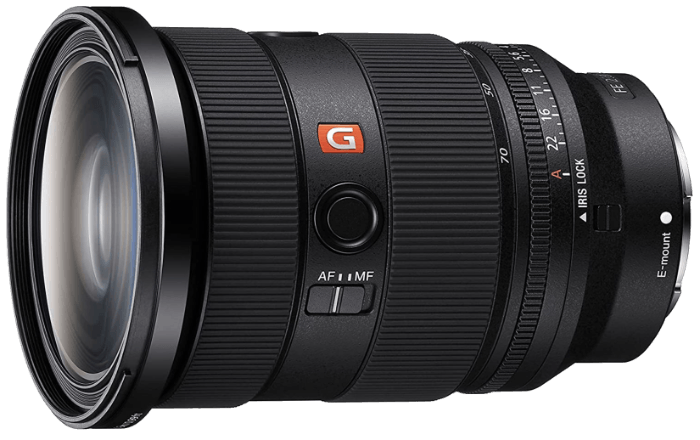

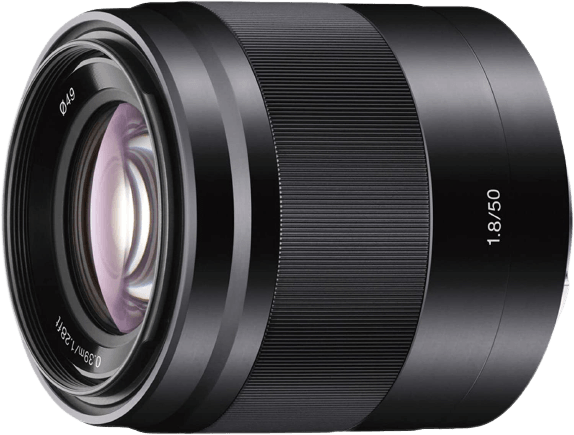

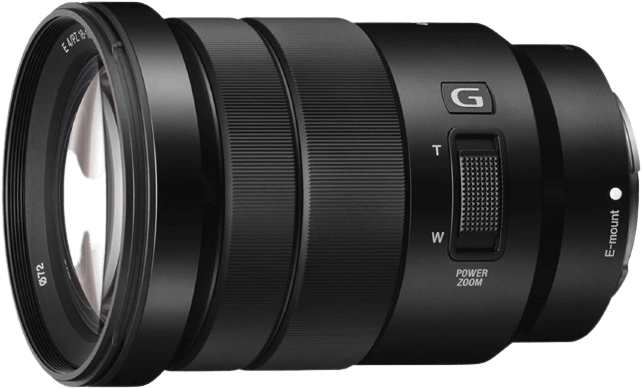

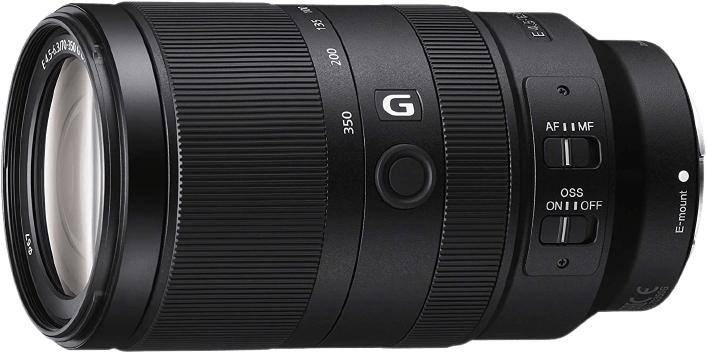

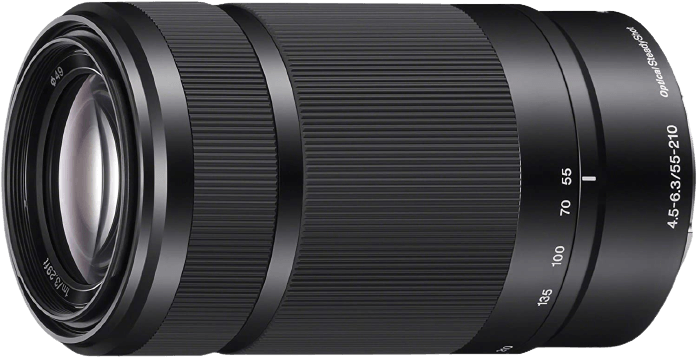

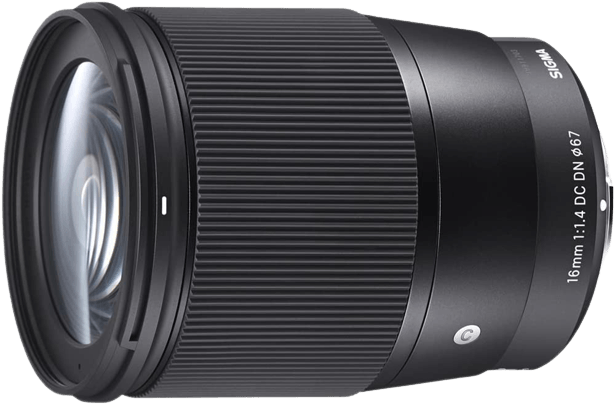
















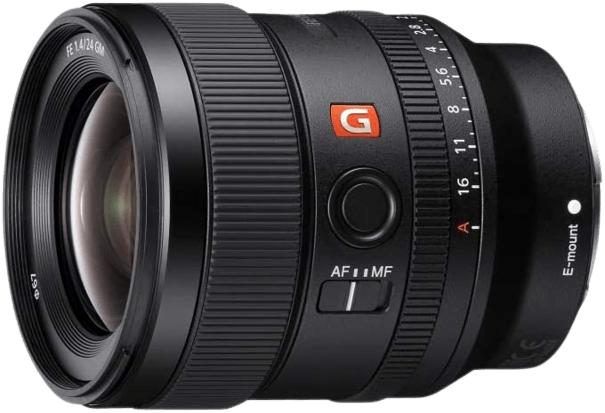

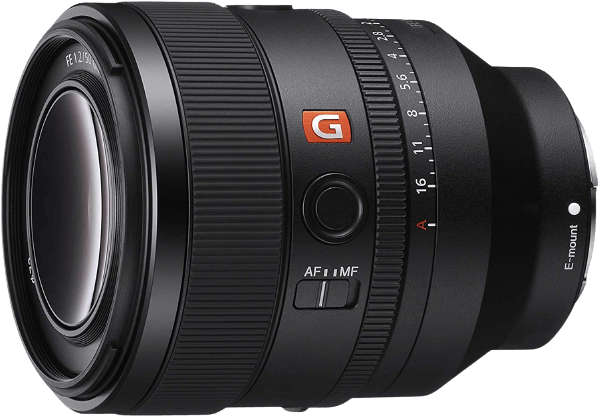

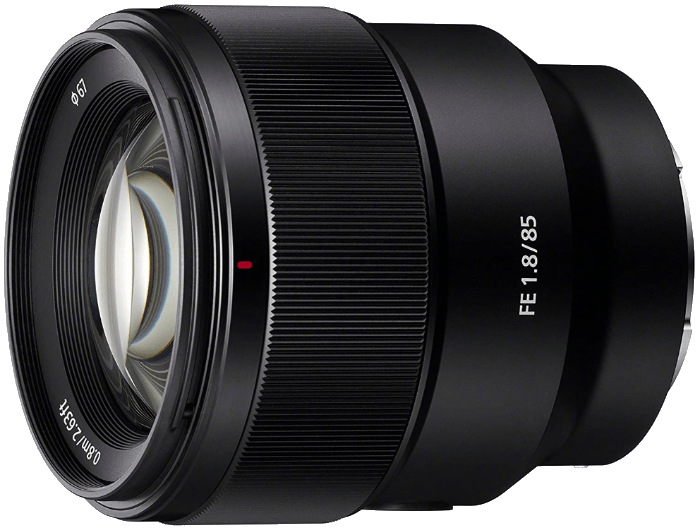

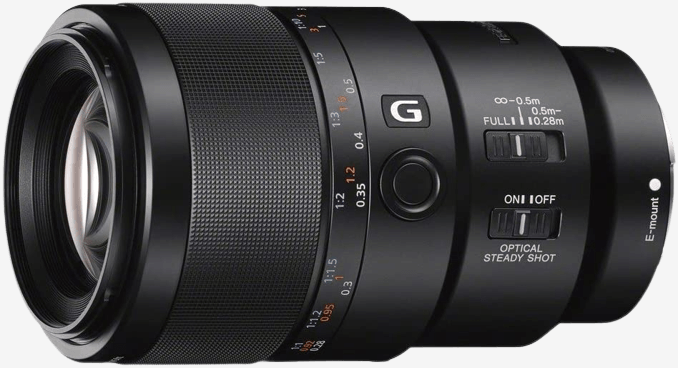

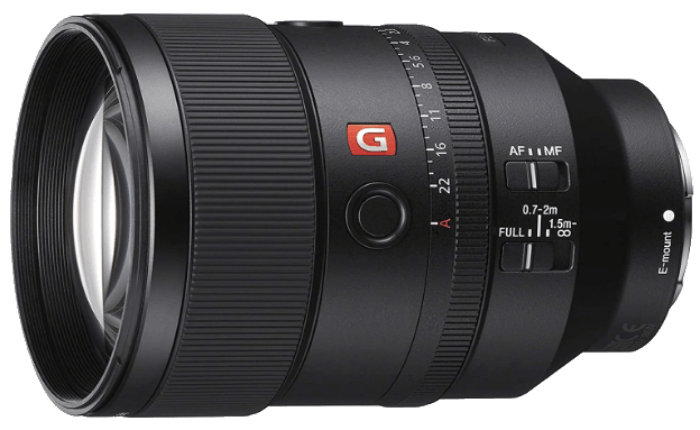
















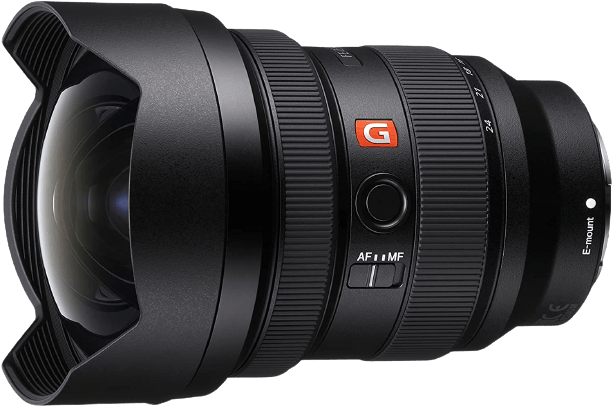

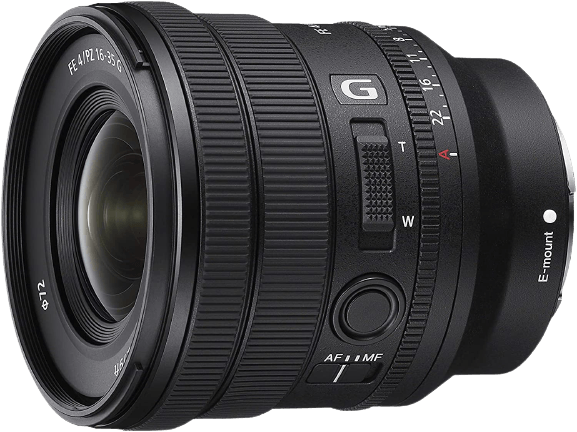



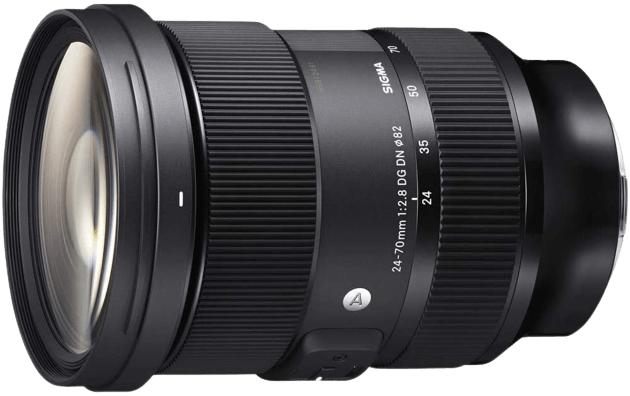

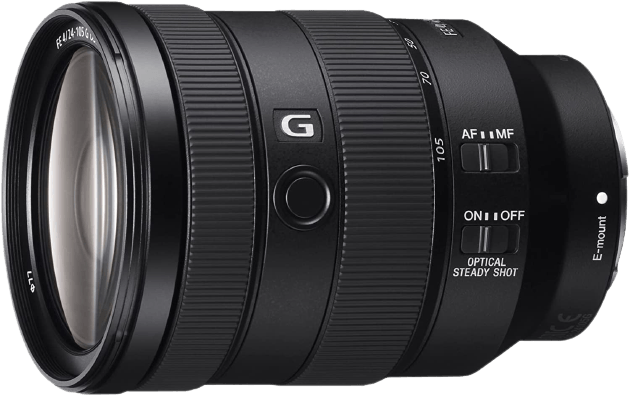

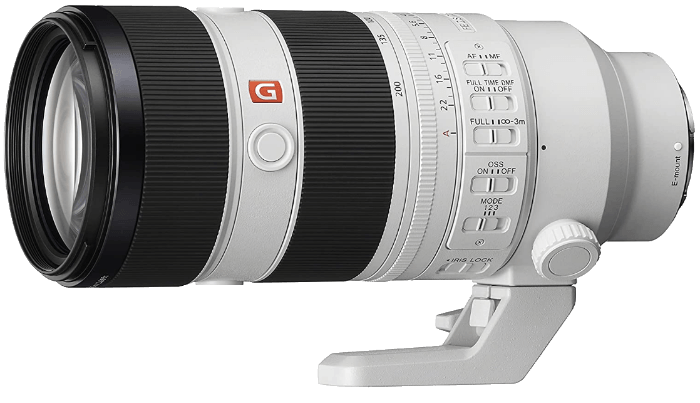

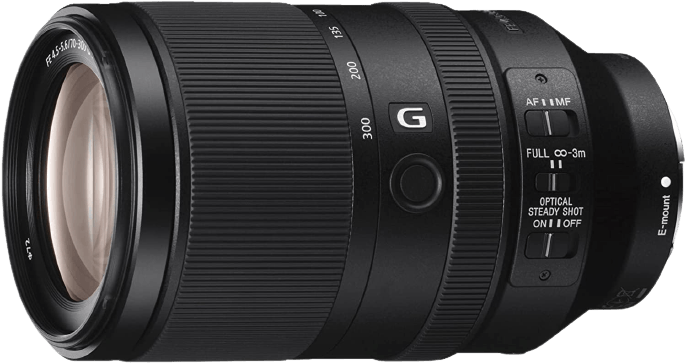

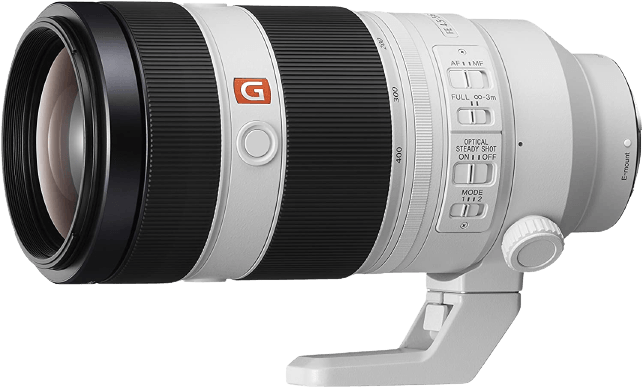

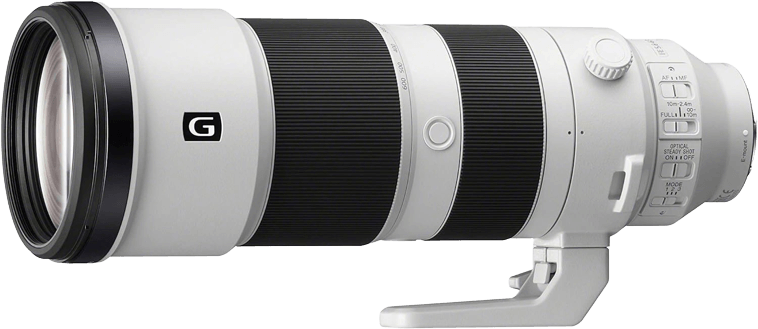




























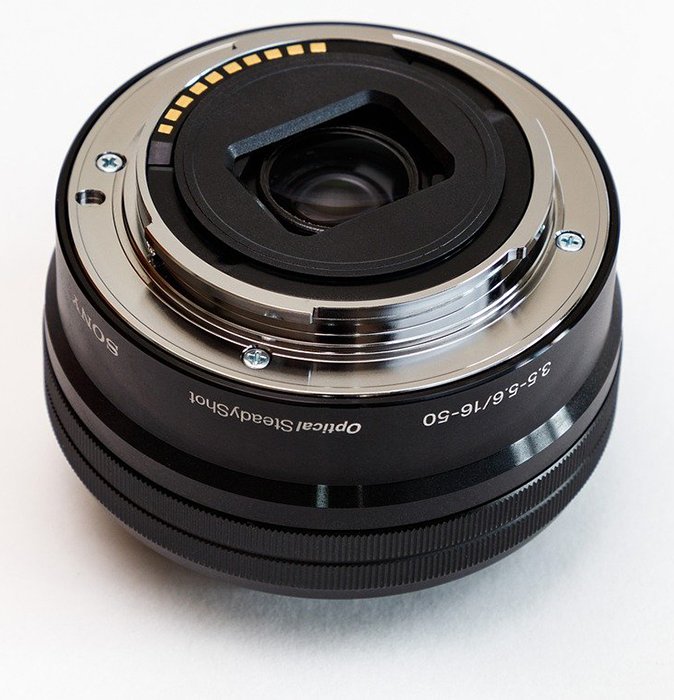


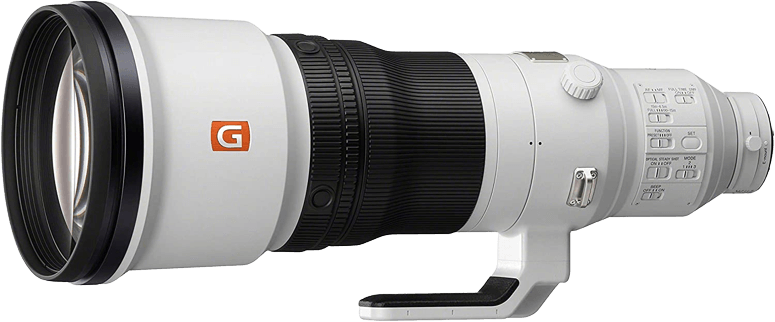



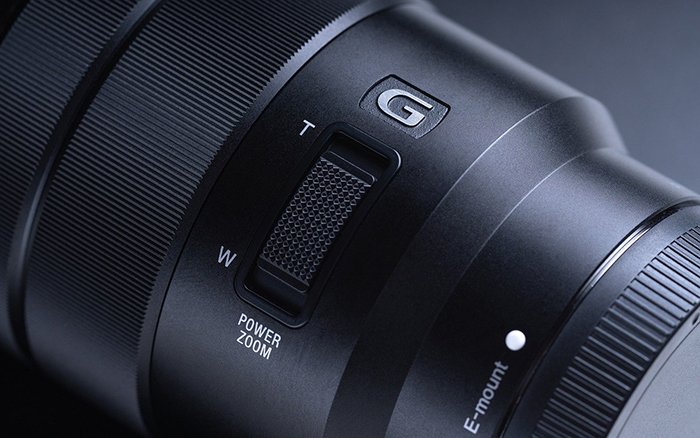








title: “19 Best Sony Lenses In 2023 E Mount Fe Lens Reviews " ShowToc: true date: “2023-01-02” author: “Michael Cox”
The Sony FE 24-70mm f/2.8 ED GM is our favorite Sony lens. It’s a brilliant wide-to-standard angle zoom range for full frame cameras. It doesn’t come cheap. But the build quality, optical precision, and features make it a worthy investment for photographers. [Note: ExpertPhotography is supported by readers. Product links on ExpertPhotography are referral links. If you use one of these and buy something, we make a little bit of money. Need more info? See how it all works here.]
Finding the Best Sony Lens in 2022
Here are the 19 best Sony lenses. On our list, you will find a variety of focal lengths—wide-angle, mid-range, and telephoto lenses. We also have prime and zoom lenses. We’ve broken our list down so you can find exactly what you need. The first section looks at Sony lenses for APS-C cameras. We then move on to lenses for full frame cameras, with sections for prime and zoom lenses. We look at each set of lenses with various types of photography in mind. These include sports, macro, and portrait lenses. Skip to the section you need by clicking a link:
Best Sony APS-C Lenses
The first section of our list is dedicated to the best APS-C lenses for Sony cameras. Sony APS-C (crop-sensor) mirrorless cameras have the Sony E lens mount. This section includes prime and zoom lenses. Here’s a quick look at all the best E-mount lenses. Then we’ll look at each Sony lens in more detail. The crop-sensor 50 mm f/1.8 OSS is one of Sony’s lightest lenses. It is the perfect balance of focal distance and aperture. The lens is fast with quiet autofocus. It is small and portable. And it works for portraits, videos, and close indoor work. It has nine elements in eight groups with seven rounded aperture blades. So it has good image stability, and the images are sharper than third-party equivalents. It is the perfect prime lens to pair with your crop-sensor body. And the price tag is nothing short of amazing! The Sony E 18-105 mm f/4 ED G OSS lens is an all-around lens for APS-C Sony cameras. It covers a wide range of focal lengths. It is perfect for travel or street photography. As a G Series lens with optical stabilization, this crop-sensor option seems to have it all. The lens has 16 elements in 12 groups with seven rounded aperture blades. On the barrel is a PowerZoom lever allowing for smooth zoom. It is a little chunkier than some other APS-C lenses. But it is quiet and has a solid build quality. This is not Sony’s sharpest lens. But it is versatile with good image quality. If you buy this lens, you are getting a good lens at an affordable price! The Sony E 70-350 mm f/4.5-6.3 G OSS is the most expensive APS-C lens on this list. This G lens has many features of mid-level, full frame lenses. But it remains an affordable lens option for all photographers. It has an exceptional reach, fast autofocus, and great image stabilization. The latter reduces signs of camera shake, like motion blur. It has 19 elements in 13 groups with three extra-low dispersion elements for sharp photos. And it uses a fast, efficient XD (extreme dynamic) linear motor autofocusing system. The lens barrel has a Focus Hold button and AF/MF (autofocus and manual focus) switch. It gives you more options with your exposure settings. And you can control image stabilization. The slower lens is not a problem if you want a long telephoto lens and mainly shoot during the day. If you are looking for a mid-range budget zoom lens, the Sony E 55-210 mm f/4.5-6.3 is the lens for you. It is small in dimension and weight, perfect for APS-C bodies. This lens is not designed to go toe-to-toe with the higher-end telephotos. But the lens has 13 elements in nine groups, with two ED and two aspherical elements. So you experience very little lens distortion or aberration. And it creates good-quality images. It has slower autofocus than the top models. But it’s still smooth and accurate, even with a fast-moving subject. The narrower aperture means that it does not work as well in low light. But you cannot beat the price! This is a good lens for traveling light. If you are looking for a crop-sensor, wide-angle prime, look to Sigma. Its 16mm f/1.4 lens works for video, landscapes, and street photography. It is sharp, fast, and works in low light. The lens has 16 elements in 13 groups with two aspherical, two Special Low Dispersion (SLD), and three “F” Low Dispersion (FLD) elements to minimize chromatic aberration. It is a bit large and heavy. But it should not overbalance crop-sensor cameras too much. It is not as quiet as the Sony equivalent and does not focus as quickly. But it gives you sharp images at a jaw-droppingly low price!
Best Sony Full Frame Prime Lenses
Now, we go through our picks for the best Sony prime lenses for full frame cameras. While prime lenses might not have the versatility of zoom lenses, these primes are well-made with crystal-clear optics. And each one has been selected for its specialist qualities.
You can browse the overview before getting into the nuts and bolts of each lens.
Lens Name Why We Love It Price Sony FE 24mm f/1.4 SSM ED GM Prime Lens Our Top Choice Compact and lightweight prime with a beautiful wide-angle view Corner-to-corner sharpness with no distortion Fast f/1.4 max aperture for better exposure control and bokeh Sony FE 50mm f/1.2 GM Prime Lens Best “Nift-Fifty” Prime A versatile lens with outstanding built quality Ultra-fast f/1.2 aperture gives you incredible creative control 11-blade aperture gives you the richest background bokeh Sony FE 85mm f/1.8-22 Prime Lens Best Value Prime Excellent sharpness even at the very edge More exposure control with the fast max aperture Double linear AF motors for fast and precise focusing Sony FE 90mm f/2.8-22 SSM ED G OSS Prime Lens Best Macro Lens Sony’s best lens for macro photography with super-sharp optics Optical Steady Shot stabilization ensures sharp images Dust- and moisture-resistant body for outdoor photography Sony FE 135mm f/1.8 ED G Prime Lens Best Portrait Lens Precision lens craftsmanship produces crystal-clear results Four DX AF motors give you quick and accurate focusing even in low light 11-blade f/1.8 aperture gives you smooth and rich bokeh
The full frame, wide-angle FE 24mm f/1.4 prime lens does it all. It works as a wide portrait lens. It is good for video or astrophotography. And it is light, bright, and tack sharp.
The fast f/1.4 maximum aperture gives you excellent exposure control. It gives better results in low-light conditions. And it helps you achieve a beautiful bokeh effect when using a shallow depth of field.
The lens is relatively lightweight with a short focusing distance. And it uses Sony’s quality Direct Drive Supersonic Motor (DDSSM) autofocus system.
The lens has 13 elements in 10 groups. There are two XA (Extreme Aspherical) and three ED (Extra-low Dispersion) elements for high-resolution, precise images. And the aperture has 11 rounded blades for a smoother, creamier bokeh effect.
The lens barrel has a customizable Focus Hold button and an AF/MF switch. It also has a de-click button allowing smooth transitions between apertures using the aperture ring.
The lens is pricey but worth it for top, super-sharp image quality. It might be the sharpest lens you own!
This fast nifty-fifty lens has Sony’s widest aperture. The Sony E 50mm f/1.2 GM is an all-around lens. You can use it for portraits, street photography, or landscapes.
It has 14 elements in 10 groups, with three XA elements. So the lens is sharp and produces superior image quality with beautiful colors.
Four Extra Dynamic (XD) linear AF motors control internal focus. So the autofocus is superior.
The aperture has 11 rounded blades. That’s why this lens has a fast f/1.2 maximum aperture. It gives you more control in low light. Plus, the 11-blade aperture gives you a soft and smooth bokeh effect.
The lens has a Focus Hold button and an AF/MF switch. And it also has a physical aperture ring and a de-click switch to make a smooth transition in videography.
The lens is large for a prime. But it seems well-balanced and has amazing low-light performance. The lens is expensive, but it is Sony’s best 50mm lens.
The Sony FE 85 mm f/1.8-22 prime does not wear the G or GM badge. But it creates excellent image quality and has all the features you want in a short telephoto prime.
The lens has nine elements in eight groups with one extra-low dispersion element. So portraits are super sharp, and the colors are amazing. The aperture has nine rounded blades that create a lovely bokeh.
It uses a Dual Linear autofocus motor. So the focus is fast and accurate. Plus, a Focus Hold button and an AF/MF switch are on the barrel.
This is the budget version of the Sony FE 85 mm f/1.4 GM. And it is smaller and lighter than the f/1.4 version. If you do not need the wider aperture, go with this lens.
The f/1.8 has good image quality—not just at this price point. It is comparable to the higher-priced version and may perform better. This lens gives you quality without breaking the bank!
The Sony FE 90 mm f/2.8-22 is one of the best macro lenses on the market. At this focal length, it is also useful for close-up portraiture. The wide aperture with nine rounded diaphragm blades gives you a sharp look with terrific background bokeh.
It has a 1:1 magnification ratio and uses the precise DDSSM autofocus system. There are 15 elements in 10 groups, including Aspherical, ED, and Super ED elements. The precision-lens engineering gives you images free of glare and distortion.
The lens barrel includes a sliding focus ring for AF/MF selection. There is also a Focus Hold button and a focus range limiter to set your capture distances for easier focus. You can also control image stabilization.
The bokeh is creamy, smooth, and beautiful. If you are looking for a macro lens, look no further. For the cost, you get a super-sharp lens for macro, portrait, and product photography.
Time and again, this amazing lens is listed as one of the top portrait lenses on the market. The FE 135 f/1.8 G is sharp, with edge-to-edge clarity. And the AF motor is fast, smooth, and quiet. It’s a specialist portrait lens that delivers incredible results every time.
It is perfect for weddings, allowing you to snap individual and group shots of the whole wedding party. The wide aperture lets you shoot at low light and higher shutter speeds.
It has 13 elements in 10 groups, including XA, Super ED, and ED elements for clear, great-contrast images. There are 11 rounded diaphragm blades. And combined with the fast max aperture, they give you smooth and rich bokeh for pro portraits.
There are two Focus Hold buttons on the lens barrel and a focus range limiter. The lens has a physical aperture ring and a de-click switch. These make the lens attractive for videography.
The lens is one of Sony’s heavier and more expensive prime lenses. But this lens is hard to beat if you want a long telephoto prime!
Best Sony Full Frame Zoom Lenses
Now we’ll get into the best Sony full frame zoom lenses. There are some excellent choices here, with something for everyone. There’s a variety of prices. And we have a lens that suits every type of photography.
Here’s a quick overview. Keep reading after for more details on each lens.
Lens Name Why We Love It Price Sony FE 12-24mm f/2.8 ED GM Zoom Lens Our Top Choice Ultra-wide angle of view with sharp edge-to-edge optics Fast max aperture that’s constant through the zoom range Four XD linear motors for incredible autofocusing Sony FE 16-35mm f/4.0 G Zoom Lens Best for Landscapes The wide-angle zoom range gives you excellent versatility Excellent AF motor for fast, smooth, and quiet focusing 11-blade aperture gives you sharp focus and smooth bokeh Sony FE 24-70mm f/2.8 ED GM II Zoom Lens Best All-Around A versatile zoom range that suits many photographers Fast and precise focusing from the DDSSM AF motor Customizable Focus Hold feature for faster focusing Sigma 24-70mm f/2.8 Art DG HSM Zoom Lens for Sony E-Mount Best Third-Party A versatile lens with excellent optics 11-blade aperture ring gives you rich and smooth bokeh Constant f/2.8 aperture gives you brilliant exposure control Sony FE 24-105mm f/4.0 ED G OSS Zoom Lens Best for Travel Compact lens with a wide focal length range Fast AF for moving subjects Built-in optical image stabilization for more exposure control Sony FE 70-200mm f/2.8 ED GM OSS Zoom Lens Best Telephoto Constant aperture of f/2.8 gives you incredible low-light performance Packed with AF motors for fast and accurate focusing even with fast-moving subjects The built-in optical stabilization maintains sharpness Sony FE 70-300mm f/4.5-5.6 ED G OSS Zoom Lens Best Mid-Range Crisp, distortion free images throughout the zoom range A fast AF motor system that’s ideal for moving subjects Built-in image stabilization reduces camera shake and blur Sony FE 100-400mm f/4.5-5.6 SSM GM OSS Zoom Lens Best for Sports Sharp image quality throughout the focal length range Barrel has a zoom torque adjustment ring and removable tripod collar The image stabilization compensates for the slow aperture Sony FE 200-600mm f/5.6-6.3 ED G OSS Zoom Lens Best for Wildlife Incredible level of magnification with stunning optical quality A fast AF motor system and great adjustable focus settings Reliable optical image stabilization for sharper images and more control
The Sony FE 12-24 mm f/2.8 GM is a ridiculously sharp lens with the widest angle of view Sony makes. The edges are sharp with no coma or chromatic aberrations, even at 12mm.
You can use this lens for real estate, landscape, astrophotography, or as a walking-around lens. It is probably too wide for portraiture. But the bokeh is beautiful.
The lens has 17 elements in 14 groups with multiple aspheric elements and extra-low dispersion elements. This increases sharpness and reduces chromatic aberrations. The aperture ring has nine rounded blades for great bokeh.
Like many ultra-wide lenses, it has a bulbous front element. This means you cannot screw a filter onto the front. But you can place gels behind the lens. With the 4x XD linear motors, autofocus is fast and precise.
The lens is hefty and built like a tank. But for the build, it is surprisingly light. The lens has a customizable Focus Hold button and an AF/MF switch.
This is one of the more expensive lenses on the list. But if you are looking for an ultra-wide angle zoom, it is worth every penny!
The Sony FE 16-35mm f/4 G is a power zoom lens (PZ). It is one of the best landscape lenses you can buy. It is also great for real estate and indoor photography.
The lens has 16 elements in 13 groups for sharp focus. And there are two extra-low dispersion elements plus three aspherical and two XA elements for clear photos.
It has 11 rounded blades for a smooth, creamy bokeh effect. And there is a Focus Hold button on the lens barrel and an AF/MF switch.
This lens is the latest upgrade of the Sony FE 16-35mm f/4 ZA (Zeiss) zoom lens. It’s a staple for many photographers. This newer version is faster and sharper and uses the upgraded, precise DDSSM autofocus system. But the improvements also increase weight and size.
The upgrades also more than double the price of the lens. Many photographers prefer the older version. The older Zeiss lens may be the answer if you are on a budget. But if you can afford this one, it’s well worth the money. It’s an investment you won’t regret!
Sony’s 24-70mm f/2.8 GM II replaces the already spectacular 24-70mm f/2.8 GM. It creates sharp, high-quality images and has fast autofocus. It’s a versatile standard zoom lens with sharp optical quality. And it’s an excellent all-rounder.
The range is perfect for many photographers. You can use it for food, landscapes, or portraits. It’s also great for indoor photography, astrophotography, or as a travel lens.
The second generation version is smaller and lighter. But it has the same high image quality. Plus, there are also some added features for videographers.
It has 20 elements in 15 groups with XA and Super ED elements for clear, good-contrast photos. It uses the quick DDSSM autofocusing system. And the lens has 11 rounded blades for a smooth, creamy bokeh effect.
The lens barrel has a customizable Focus Hold button and an AF/MF switch. And the newest version has a de-click button to allow smooth transitions between apertures using the aperture ring.
The price may be high, but it is the top lens for nearly every situation. If you buy only one lens, this is the one!
It took a little time for third-party lens manufacturers like Sigma to take notice of Sony’s mirrorless system. But there has been an explosion of quality lenses from these companies.
The Sigma 24-70 mm f/2.8 DG DN Art lens is sharp, with 19 elements in 15 groups. There are six FLD and two SLD elements to prevent chromatic aberration.
The aperture has 11 rounded blades for nice bokeh, just like Sony lenses. And the lens barrel has a Focus Hold button and an AF/MF switch for great focus options.
The Sigma is half the price of the Sony FE 24-70mm f/2.8 GM II but gives it stiff competition. The Sony version has an edge with image sharpness. But this lens is not far behind in quality.
This is the lens for you if you’re looking for a budget option. You won’t notice that you’re not using the much more expensive Sony lens.
Sony’s 24-105 mm f/4 G is the perfect travel lens. It covers a wide range of focal lengths and is small enough for everyday use. The images are sharp. And the autofocus is fast, smooth, and quiet.
The f/4 maximum aperture isn’t the fastest. But the built-in Optical Steady Shot stabilizer gives you more options in low light. You can reduce your shutter speed without the risk of camera shake.
The sharp lens has 17 elements in 14 groups. And there are four aspherical and three ED elements to ensure clear, nice-contrast photos. It has a precise DDSSM autofocusing system. And it features nine rounded aperture blades for nice bokeh.
Sony makes faster lenses, but this lens has versatility. It’s a premium-quality Sony lens. And it could be your go-to lens!
The Sony FE 70-200 mm f/2.8 GM II is Sony’s flagship telephoto lens. It ticks the boxes for wildlife, sports, concert, and portrait photography.
At f/2.8, it has great low-light performance. The minimum focusing distance is surprisingly short.
The fast lens has 17 elements in 14 groups. There are two ED, two Super ED, one XA, and one aspherical element for sharpness.
The RDSSM and four XD linear motor (LM) AF system is four times faster than the previous model. And it has 11 rounded aperture blades for pleasing bokeh.
The lens barrel has three Focus Hold buttons and an AF/MF switch for convenient focus. And there is also a focus limiter. Plus, you can control image stabilization.
And the lens comes with a removable and rotating tripod collar. This helps you easily switch between landscape (horizontal) and portrait (vertical) orientation.
This is the best telephoto lens Sony makes. But quality comes at a price. It is one of the more expensive on the list.
If you can afford to lose a stop of light, try Sony’s FE 70-200 mm f/4 G. You will save some money.
The Sony FE 70-300mm f/4.5-5.6 G is a fantastic telephoto zoom for your Sony full frame camera. It has a wide focal length range, giving you excellent shot variety. And the quality means you can take pictures worthy of any sports or wildlife publication.
The quality of the glass elements is outstanding. You might experience some minor forms of distortion or glare at the extremities of the frame. But they aren’t enough to seriously hinder your photos.
The f/4.5-5.6 maximum aperture isn’t the fastest. But the lens compensates with the Optical Steady Shot stabilizer. You can shoot with slower shutter speeds with a reduced risk of blur. And it helps when you’re shooting in low light.
The AF motor is excellent. It’s fast and responsive enough to capture fast athletes and animals. Plus, it has excellent close-up focusing capabilities.
It isn’t the cheapest lens. But it is fantastic value with this level of magnification. The image quality, AF motor, and image stabilization also increase the value for money.
If you need a bit more reach, Sony’s 100-400mm f/4.5-5.6 GM comes in a close second to the 70-200 mm f/2.8 GM II. It’s heavier and larger. But it gives you outstanding magnification.
It also is slower, with a variable maximum aperture of f/4.5-5.6. But both lenses use the same focusing system and work with Sony’s teleconverter. (Sony’s 2x teleconverter can double the focal length.)
The lens has 22 elements in 16 groups, with one super ED and two ED elements. So the lens produces exceptionally sharp images, and the color is excellent. And it has nine rounded aperture blades for nice bokeh.
The lens has three Focus Hold buttons and an AF/MF switch. There is also a focus limiter, and you can control image stabilization. The lens comes with a removable and rotating tripod collar. And the barrel also has a zoom torque adjustment ring.
This lens has the extra reach, but you can still handhold it. It is my personal favorite.
At 600mm, the FE 200-600mm F/4.5-5.6 G is the longest telephoto lens Sony currently produces. The lens is long, but unlike the 100-400mm, it has an internal zoom mechanism. So it does not extend when zoomed out.
There are 24 elements in 17 groups, with five ED and one aspherical element. So it creates tack-sharp images. And it uses the fast DDSSM autofocusing system.
It has a variable f/5.6 to f/6.3 maximum aperture. And it has 11 rounded aperture blades for pleasing bokeh,
The lens has three Focus Hold buttons, an AF/MF switch, and a focus limiter. You can control image stabilization. And it also comes with a removable and rotating tripod collar.
This lens is for you if you need the reach for sports or wildlife. And it works with Sony’s teleconverters (like the 2x teleconverter to double the focal length).
About Sony Lenses
If you are new to the Sony system, let’s start with a short introduction.
Camera Mount: E-Mount
Since 2010, Sony mirrorless cameras have used a standardized E-mount system. Sony has largely sidelined its older A-mount system, though it has not been officially retired. E-mount lenses work on Sony full frame cameras like the Sony a1. They work equally well on a crop-sensor body like the Sony a6600. On crop-sensor cameras like the a6600, the focal lengths are 1.5 times those printed on the lens. Crop sensor lenses are generally less expensive and smaller than their full frame counterparts. But if you plan on moving to a full frame camera in the future, you can invest in the best Sony full frame lenses now. Sony labels lenses designed for full frame cameras “FE.” Sony labels APS-C lenses with an “E.” This can be confusing at first. One of the first lenses I purchased for my full frame Sony a7 II was an APS-C lens. I simply did not know the difference.
Sony Lens Features
You can easily get lost in the lens’s focal lengths, apertures, and other features. Here are a few things to look for when buying a lens for a Sony camera.
Image Quality
You can find Sony lenses of similar focal lengths and maximum apertures at different price points. Superior image quality has to do with lens features, internal construction, and the type of glass used. The best Sony lenses are labeled G or GM:
G stands for “Gold.” Lenses labeled with a G are higher-quality lenses. GM stands for “G Master.” These are Sony’s top lenses. They have a beautiful image quality. But are often heavy and expensive.
A few lenses in the regular lineup give these top-quality lenses a run for their money. ZA means the lens is made with Zeiss glass. Zeiss is a legendary German lens manufacturer. And Zeiss glass is considered some of the best in the world.
Focal Length
Sony offers lenses at a range of focal lengths. Some are prime lenses fixed at one focal length. Others zoom, letting you choose from a range of different focal lengths. In recent years, Sony has pushed to include faster telephoto lenses in its lineup. The a9 camera bodies and fast telephotos have made the system attractive to more sports and wildlife photographers. Most recently, Sony has focused on lenses for video. Sony’s longest focal length is now the Sony FE 600 mm f/4 GM OSS. It is a sports and wildlife photographer’s dream. But it comes with a hefty price tag. It is currently Sony’s most expensive lens, followed by the Sony FE 400 mm f/2.8. There are rumors of an 800 mm f/5.6 lens. Currently, the widest focal length is in the full frame FE 12-24 mm f/2.8 GM.
Aperture
Photographers value fast lenses with wide apertures like f/2.8 and f/1.8. They let in a lot of light and create a shallow depth of field. But they usually come at a higher price. The widest aperture for a Sony lens is f/1.2 on the 50 mm GM. Many of Sony’s best lenses have a constant aperture. You can use the widest aperture at all focal lengths. If the lens has a range of apertures, the widest aperture becomes smaller as you zoom.
Auto Image Stabilization
Sony cameras and lenses have some of the best auto-stabilization technology on the market. OSS indicates the lens has “Optical SteadyShot.” This is Sony’s image stabilization system. But some of Sony’s best lenses do not have auto stabilization. These lenses use auto stabilization in the camera body. And many lenses have a switch that lets you turn off auto stabilization. It’s best to turn it off when your lens and camera are mounted on a tripod.
Autofocus and Minimum Focusing Distance
Autofocus technology has changed and improved on the newest lenses. The Direct Drive Super Sonic (wave) Motor (DDSSM) is currently the best autofocus system in Sony lenses. It is precise, quick, and quiet. With some lenses, you can get close to your subject. With other lenses, you have some distance for the focusing system to work. It is worth looking at a lens’s minimum focusing distance if you like to get close to your subject.
Size and Weight
Many photographers buy mirrorless cameras to reduce the size and weight of their equipment. But they are then surprised by the heaviness of the lenses. Size and weight may be an issue if you are traveling or hiking. Many of the best lenses are heavy. Sony makes lighter lenses and a few pancake lenses if you want to keep your kit small. If you know what focal lengths you prefer, look at the Sony prime lenses. These are often, though not always, smaller, lighter, and sharper than zoom lenses.
Additional Features
Many of the high-end lenses have a Focus Hold button. This button is not labeled. You can customize the button’s function in the camera’s menu system for what you want it to do. Recently Sony has added features to the barrel on lenses designed for video. A lens may have a de-click button and an aperture ring. This lets the photographer change aperture and depth of field smoothly. PZ stands for “PowerZoom.” It is a feature that lets you quickly change focal lengths. Here are our most frequently asked questions and their answers. How do I read a Sony lens? See our article on how to read a Sony lens. Are Sony G lenses any good? Yes. Sony lenses labeled with a “G” are higher-quality lenses. G Master (GM) lenses are top-of-the-line flagship lenses. Are Sony Zeiss lenses any good? G Master lenses have replaced Sony Zeiss lenses at many focal lengths. But some photographers prefer the older Zeiss version of the lens. Which Sony lens has the best autofocus? The Sony FE 70-200 mm f/2.8 GM OSS II uses a lightning-fast RDSSM, four XD linear motor (LM) autofocusing system. What is the sharpest Sony FE lens? Many Sony lenses are sharp. The sharpest full frame (FE) lens may be the Sony FE 135 mm f/1.8 GM. What is the best Sony full frame lens? The best overall Sony full frame lens is the Sony FE 24-70 mm f/2.8 GM II. What is the best Sony APS-C lens? The best Sony crop-sensor APS-C lens is the Sony E 70-350 mm f/4.5-6.3 G OSS. What is the best Sony prime lens? The best Sony prime lens is the Sony FE 50 mm f/1.2 GM. What is the best Sony telephoto lens? The best Sony telephoto lens is the Sony FE 70-200 mm f/2.8 GM OSS II. What is the best Sony zoom lens? The Sony FE 24-70 mm f/2.8 GM II is the best Sony zoom lens. What is the best Sony lens for portraits? The best prime lens for portrait photographers is the Sony FE 135 mm f/1.8 GM. What is the best Sony lens for bokeh? The Sony lens with the best bokeh is the Sony FE 24 mm f/1.4 GM. What is the best Sony lens for indoor photography? The best Sony lens for indoor photography is the Sony FE 24-70 mm f/2.8 GM II. What is the best Sony lens for video? The best Sony lens for video is the Sony FE 16-35 mm f/4 G. What is the best Sony travel lens? Sony’s best travel lens is the Sony FE 24-105 mm f/4 G OSS.
Conclusion
Sony has been building up its lens collection for years. Now, they have one of the most diverse lineups on offer. And the build quality makes them one of the top lens manufacturers right now. The Sony FE 24-70mm f/2.8 is our favorite Sony lens. That wasn’t an easy decision to make. But the versatile zoom range and fast max aperture give it a broad appeal. This lens might not be the one for you. But we’ve included something for everyone. And when it comes to Sony lenses, no one’s disappointed.
















































































































